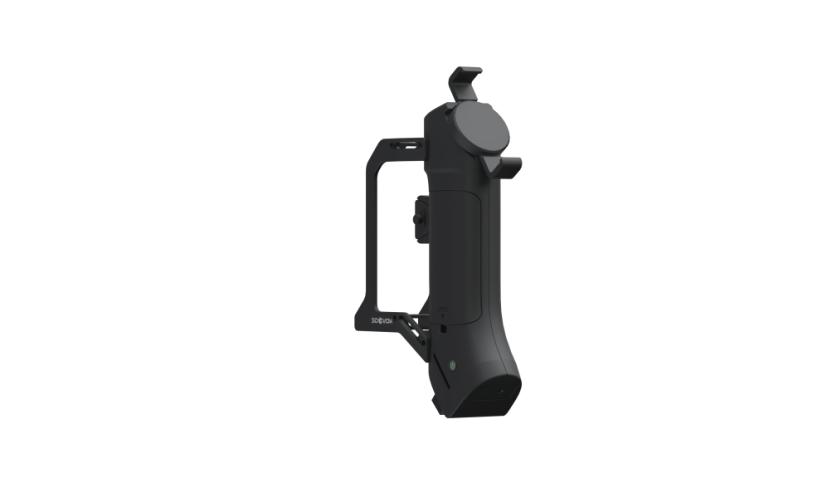Consumer vs. Industrial 3D Scanners
03/30/25
When it comes to choosing the right 3D scanner for your business, it’s essential to understand the key differences between consumer and industrial models. While both types of 3D scanners can capture detailed data, they serve different purposes. Consumer 3D scanners tend to be more affordable and accessible, making them suitable for hobbyists or small-scale projects. On the other hand, industrial 3D scanners are designed for professional use, offering high accuracy, durability, and specialized features suited for business needs.
A Quick and Easy Solution for Small-Scale Projects: Consumer 3D Scanners
Consumer 3D scanners are often the go-to choice for individuals and small businesses that need to quickly create 3D models without the complexity of professional equipment. These scanners are designed with ease of use in mind, making them accessible to those with limited technical expertise. Many consumer scanners are compact, lightweight, and relatively affordable, making them a good choice for people in creative industries like art, design, and prototyping.
However, there are limitations to consider. The resolution and accuracy of consumer-grade 3D scanners may not be sufficient for more precise tasks, such as those required in engineering, architecture, or manufacturing. These scanners also tend to have lower durability and fewer options for customizing scans, which can be a challenge for businesses that need consistent, high-quality results over time.
Enhanced Accuracy and Durability for Professional Applications: Industrial 3D Scanners
When your business requires the highest level of precision, investing in an industrial 3D scanner becomes necessary. Industrial scanners are built to handle complex tasks, providing enhanced accuracy, resolution, and speed. They are often used in sectors like automotive, aerospace, manufacturing, and healthcare, where precise measurements and data are critical to product development and quality assurance.
At 3DeVOK, our 3D scanners are built to deliver high-precision measurement capabilities, making them ideal for tasks such as reverse engineering, product development, and design validation. They are engineered for consistent performance and durability, even in demanding work environments. With features like accurate data capture, streamlined processing, and powerful yet intuitive software tools, our scanners support a wide range of professional applications where precision matters.
A Practical Approach to Choosing the Right 3D Scanner for Your business
Whether you choose a consumer or professional 3D scanner depends on the specific needs of your business. If your projects are relatively simple and do not require high accuracy, a consumer scanner is a cost-effective and efficient option. However, for businesses that work with more detailed models or need higher resolution and accuracy, a professional-grade 3D scanner offers a strong balance between performance and affordability—making it a suitable choice when precision matters but the budget is limited.
When considering a professional 3D scanner, several factors should be evaluated. First, assess the complexity of your projects. Professional scanners are well-suited for applications such as product design, reverse engineering, and quality inspection, where reliable detail capture is essential. Then, factor in your budget and long-term objectives. Although professional scanners involve a higher initial investment compared to consumer models, they can deliver better value by improving workflow efficiency, reducing errors, and supporting more accurate results over time.
Our focus is on providing professional 3D scanners that cater to the requirements of businesses in various sectors. We work closely with clients to ensure they make the right choice based on their unique demands. We understand how crucial it is to invest in the right technology for achieving business success.
Conclusion
Choosing the right 3D scanner for your business is a decision that should align with your long-term objectives and project needs. While consumer 3D scanners may be a good option for small-scale or non-professional use, industrial scanners are increasingly adopted for businesses that require high precision and reliability. By understanding the capabilities and limitations of each, we can make an informed decision that ensures your investment in 3D scanning technology adds value to your operations. Investing in the right tool can help streamline your workflow, improve product quality, and support innovation. Whether you need a consumer-grade scanner for basic applications or a professional 3D scanner for complex industrial projects, it’s essential to select equipment that can grow with your business. We are committed to providing our clients with reliable, high-performance 3D scanning solutions tailored to their unique needs.
Related Articles
View Our Product






